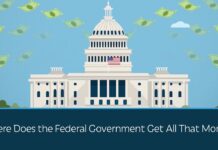The conversation has shifted since the Supreme Court decision on race-based admissions.
It’s become a theme. For years now, right-leaning commentators from Matt Walsh to Ann Coulter have accused the GOP establishment of failing to address discrimination aimed at white Americans.
Tulsi Gabbard, a Democrat, calls out anti-white racism by name. No elected Republican on the national stage has done this. That tells you everything you need to know about Republicans. https://t.co/PurjENANVW
— Matt Walsh (@MattWalshBlog) May 21, 2021
“Republicans are terrified of stating the obvious: Discriminating against white people is unfair to white people. Instead, the preferred argument is: ‘It’s not good for black people, either!’” Ms. Coulter wrote on her Substack several weeks ago.
Yet the mood is rapidly shifting among elite conservatives, including those who could shape a future Republican presidential administration.
Against the backdrop of a landmark Supreme Court ruling against affirmative action, a practice intended to remedy past discrimination against black Americans that has become a persistent barrier for white and Asian Americans, conservative intellectuals have refined their case against anti-white discrimination while curbing some of the internal policing that once silenced discussion.
Steve Sailer, a writer canceled by the old neoconservative establishment, has returned from exile. And Jeremy Carl, a Trump administration alumnus, is working the conservative super-influencer circuit in support of his new book, “The Unprotected Class: How Anti-White Racism Is Tearing America Apart.” He’s speaking publicly with Tucker Carlson, Charlie Kirk, and other big names about topics once suppressed on the mainstream American right.
His interview with Mr. Carlson drew a response from X owner Elon Musk: “Concerning.”
Even former President Donald Trump is responding to the national mood.
“I think there is a definite anti-white feeling in this country, and that can’t be allowed,” he said in a recent interview with Time.
“The environment is vastly freer than it was just a few years ago. To speak of anti-white racism is no longer universally taboo,” Mr. Carl wrote in his book.
The Court Rules
In June 2022, the Supreme Court overturned Roe v. Wade, super-charging the national debate on abortion. Almost exactly one year later, the court’s ruling in a case pitting Asian American applicants against Harvard University and the University of North Carolina delivered another jolt to the American system.















































